
For Abby Hakimi, taking a gap year in Israel wasn’t just an opportunity to explore her heritage and study—it was a chance to make a difference. During her time at TVA, she volunteered at Achuzat Sarah, an Emunah residential children’s home in Bnei Brak. This place serves children removed from their dysfunctional homes by the government, offering them not just shelter, but a nurturing environment filled with hope and growth.
“The first time I visited, I was amazed,” Abby recalled. “There are so many places for the kids to hang out. There are dance rooms, art rooms, areas for sports. The kids live in apartment complexes, and the older girls have kitchens where they can cook for themselves.” The environment at Achuzat Sarah stood out to Abby as warm and uplifting. “The kids seemed happy and very close with their madrichot,” she said. “They have many kinds of therapies—gardening, art, drama. I did a lot of gardening therapy with them. It was relaxing, and we bonded while working with the tools. The girls also cook a lot and make jewelry. The jewelry-making is empowering because some of the girls get to work in a real jewelry shop and earn their own money.”
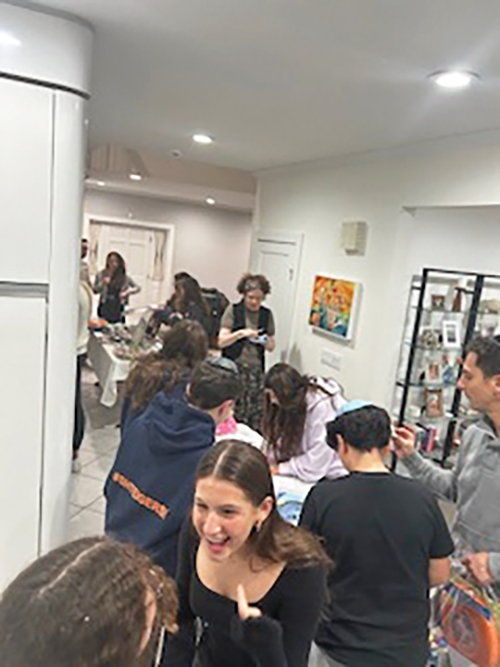
Abby worked with girls between ages 8-12. “There is a strong brotherhood and sisterhood among the kids who live there. It’s amazing that as a Jewish people, we put so much effort into making sure that every Jewish child has a place to call home. I was lucky to be a part of that for a little bit.”
To extend their support, Abby’s family hosted a Chanukah gift-packing night in their New Rochelle home for the children of Achuzat Sarah. Community members came together to assemble gift bags and write heartfelt cards, and the evening featured presentations by key members of the Achuzat Sarah team.
Shlomo Kessel, international director of philanthropy for Emunah, shared the organization’s origins. “Emunah began in 1935 with women who wanted to help less-fortunate young mothers,” he explained. “It has grown to include 130 welfare and educational projects, serving 8,000 children daily—many of whom this past year have been deeply affected by war and trauma.”
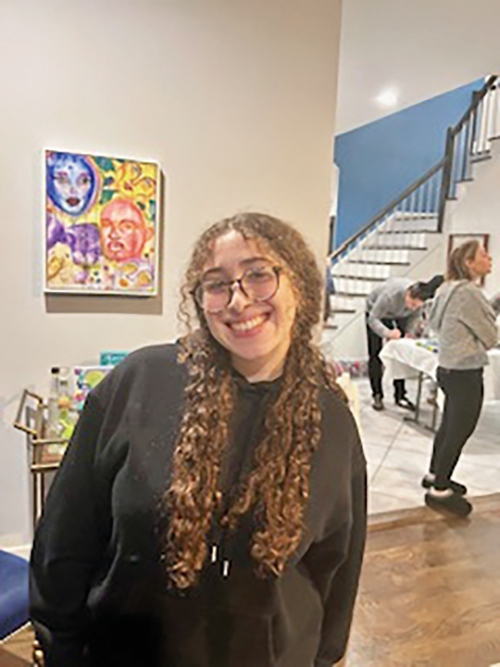
The spotlight then shifted to Chagit Melamed, who has worked at Achuzat Sarah for 16 years. “Achuzat Sarah is a green oasis in the middle of Bnei Brak,” she said. “It’s a happy place, though many of the children come from tragic circumstances. We currently have 75 children, ages 8 to 18, who have been placed with us by court order. The first months are often difficult, but once the children realize that this is a place where they can get the tools to redirect their life, you see the change in them.”
Sonia Manashirov, another team member, highlighted the day care program for children who can remain in their homes but need additional support. “These kids come after school, receive a hot meal, therapies, and homework help before returning home. It’s a vital alternative to full removal from their families.”
One of the most powerful moments of the evening came when the group watched a video about Sarah, a young woman who had lived at Achuzat Sarah. Removed from an abusive home, Sarah described how the care she received changed her life. “For the first time, I felt that people cared about me and gave me real love and support,” she said in Hebrew. “This is where I learned what אהבה משפחתית—family love—really is.”
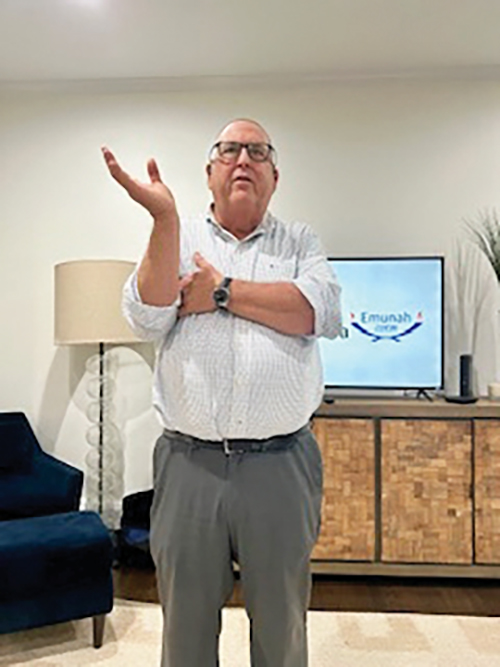
“They also helped me develop myself,” she added. “They brought me to be the person that I am now. If I would have stayed in my home, I don’t know what would have become of me. Achuzat Sarah became my family. Now I am a nurse, I’m married and pregnant. Achuzat Sarah showed me that kids are supposed to be raised with love, and that is how I will raise my own children.”
After the video, Melamed and Manashirov shared that one of Achuzat Sarah’s social workers, Gila, had become quite close with Sarah during the years when Sarah had lived there. During the pandemic, Gila became very ill and was admitted to the hospital where Sarah worked as a nurse. Sarah made sure to take charge of Gila’s care during her stay, and was devoted to her care day and night. “In this way, the care came full circle,” said Melamed.
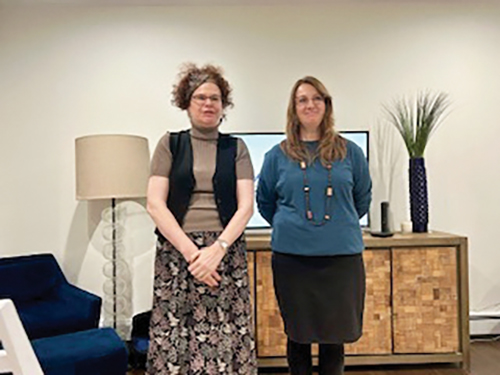
The team also spoke about the educational and recreational opportunities provided at Achuzat Sarah. “Some children arrive after months or years without schooling,” Manashirov said. “We work to get them back on track academically while providing after-school activities like sports and Bnei Akiva youth group trips. We want them to feel like any other kids in Israel.”
Kessel closed the night with a story that encapsulated the resilience of Achuzat Sarah’s children. “I met a boy named Golan on my first day working there. He was new to Achuzat Sarah, and very angry. When I suggested he take a shower, he threw a chair at me. This boy is now a happily married father with six kids of his own. Another graduate got married this week. The idea is we want them to see the world as a place where they don’t have to feel fear or threatened. Kids who grow up in abusive homes think that everyone else is like that. We want them to learn how to relax and form deep relationships with others.”
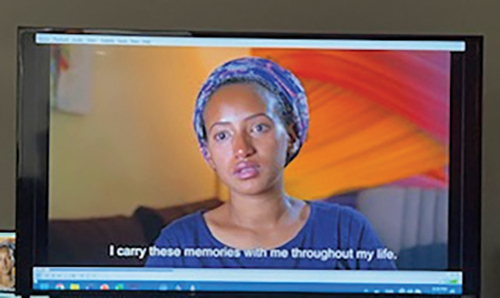
Kessel added, “Over 95 % of our kids serve in significant roles in the IDF or national service. They are tenacious, committed and resilient. They have no trouble sleeping in a small tent. They can handle the tough times. They’ve learned how to face the world with hope and strength.”
To learn more or to donate, visit: Emunah.org/donate








